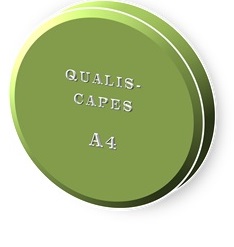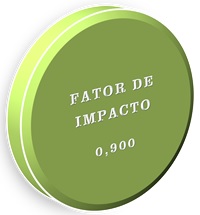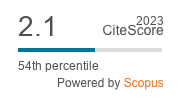About the Journal
Focus and Scope
Revista Caatinga is a scientific journal published in continuous flow, in a single annual volume and without numbering, classified as Qualis A4, published by the Pro-Rectory of Research and Postgraduate Studies of the Federal Rural University of the Semi-Arid - UFERSA, since 1976.
Its aim is to provide the scientific community with high-level publications in the areas of Agricultural Sciences and Natural Resources, making relevant results of published research available in full and free of charge.
Its mission is to
To instigate professionals and students on scientific topics of interest in the areas of publication of Revista Caatinga;
To promote interaction between the scientific community through the full and free dissemination of its journals;
To serve as an important means of continuing and permanent education that enables the exchange of information between teaching, research and extension institutions, other information vehicles and society as a whole.
The target audience for Revista Caatinga is all professionals and students in the areas of Agricultural Sciences and Natural Resources, as well as those interested in the themes proposed by the journal, as these are of relevant social interest that may contribute to improvements in important sectors of society.
The following can be accepted for publication: SCIENTIFIC ARTICLES
INDEXATION
As a bibliographic control granted to the so-called 'indexing bases', it is an important process as a means of disseminating scientific articles in electronic libraries or other types of repositories; it influences the parameters for qualifying a journal. Revista Caatinga is currently indexed in the following databases:
Peer Review Process
Manuscripts submitted to Revista Caatinga will first be evaluated by the Editorial Committee. If approved, they will continue to be processed and, in the EVALUATION stage, will go through a selection process that will involve assessment by specialists who have extensive knowledge in the thematic areas of publication of this journal. The papers will be sent for evaluation without identifying authorship, preserving the identity of the authors and their affiliations, in line with the privacy policy adopted.
All texts will be submitted for evaluation by at least 3 (three) ad hoc reviewers in accordance with the criteria proposed by Revista Caatinga, so that they can make a good analysis of the merits of the manuscript.
Revista Caatinga has a team of ad hoc evaluators (referees), who are invited members. However, it is MANDATORY to send a SUGGESTED ad hoc reviewer, according to the specifications provided to users in the “Submissions” section.
In the submission process, in step 2 “Transferring the manuscript”, authors will attach suggestions for 6 (six) or more reviewers. The suggested evaluators must not be linked to the work or the institution that carried out the research; they must have a doctorate and experience in the line of research of the manuscript to evaluate the proposed theme.
Therefore, if the evaluators indicated are not researchers in the thematic area of the work submitted, they will be disregarded and the work will be delayed.
The file with the suggestions must include the full name of the researcher, the institution of origin, e-mail and the link to the researcher's Lattes CV and, for foreign evaluators, all the information except the Lattes CV.
Once the nominations for ad hoc evaluators have been sent, this journal will proceed with the invitations. Users/authors are reminded that failure to send this list will result in the manuscript being archived.
Process:
The ad hoc evaluators fill in the opinion form via the journal system. On the form, they provide justifications: accepting, rejecting or recommending necessary corrections and/or adjustments. Every opinion will include a justification. The evaluation period can last up to 30 (thirty) days. However, it can take an average of three (3) months for the evaluations to be sent to the authors.
The evaluation will take into account
- Relation to the journal's publication areas;
- The structure of the manuscript;
- Suitability of the title to the content;
- Clarity and relevance of the objectives;
- Methodology;
- Results and discussion;
- Comprehensible and coherent information;
- Citations and references in line with the technical standards adopted by the journal.
The peer review process will preserve the identity of the authors and their affiliations. Once they have finished analyzing the manuscripts, the evaluators will send their opinions to the Editor-in-Chief, who will distribute them by thematic area among the Associate Editors, after which the editorial decision will be communicated to the author(s).
Approved articles
The Editorial Committee of this journal is responsible for the final decision on acceptance for publication. Approval for publication will be based on originality, quality and scientific merit.
After approval, the article will be translated/revised into English, under the full responsibility of the authors. The entire procedure and other requirements are detailed in the “Submissions” section.
Plagiarism:
This journal is subject to plagiarism detection; all members involved in the processing of the manuscript, such as the Editorial Committee and Reviewers, carry out a thorough analysis and may identify plagiarism in the manuscript; in this case, the submission will be rejected and archived, and the authors will subsequently be informed.
Periodicity
Revista Caatinga is a scientific journal published in continuous flow, in a single annual volume and without numbering. When a new volume is published, Revista Caatinga notifies all registered users by e-mail and publishes a notice on its website.
Open Access Policy
Revista Caatinga offers free and immediate access to its content, following the principle that making scientific knowledge available to the public free of charge provides greater global democratization of knowledge and a greater exchange of knowledge. This policy leads to the dissemination, increased readership and citation of an author's scientific article. To access, simply click on REGISTER, register your password and provide your name and e-mail address.
Our editorial policy follows the research communication in the Open Science modus operandi.
Revista Caatinga adopts the Creative Commons License CC-BY for all the content of the journal, except where otherwise noted.










